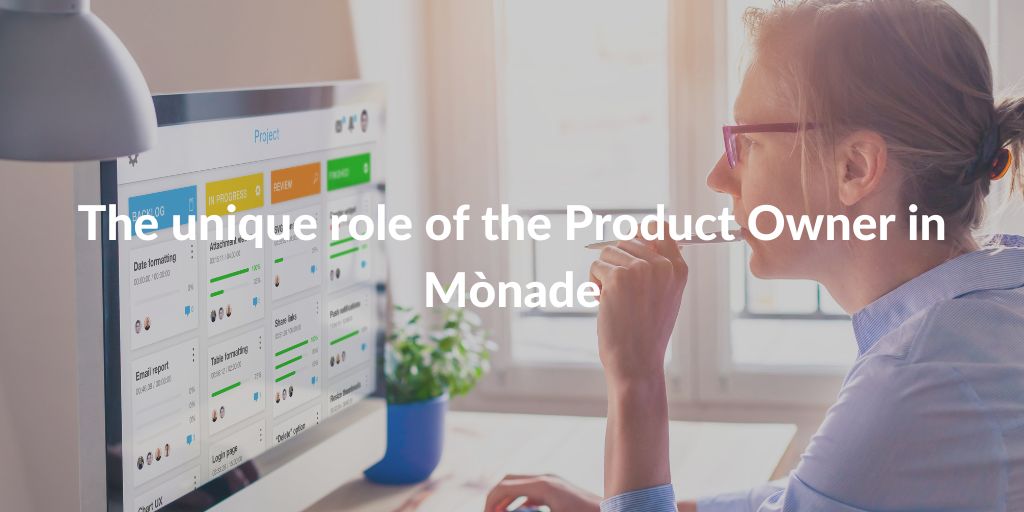Categories
Tags
Newsletter
Subscribe to the QRP International neswletter and get all the news on trends, useful contents and invitations to our upcoming events
Subscribe
In the world of software development, especially when the scrum framework is used, the role of the Product Owner (PO) is crucial in ensuring that the final product meets the customer’s needs and requirements.
The Scrum framework defines the Product Owner as an individual responsible for defining and prioritising the product backlog, as well as representing the customer to the development team.
However, in Mònade the figure of the Product Owner takes a unique form that differs from the traditional Scrum framework. In this post we explore the role of the Product Owner in Mònade and compare it with the Scrum framework, highlighting the main differences.
First, let us specify what kind of company Mònade is and how it operates. Mònade is a company of developers and designers offering expertise for projects with a profound innovative character.
Full stack developers, UX/UI experts, product owners, agile delivery managers: teams of professionals from different worlds make up dedicated teams for each individual project.
So for each project there are different heads working in synergy to deliver the most effective digital solution. This means that Mònade is a development studio that takes on external projects and products, which it does not own. The characterisation of the Product owner (PO) is highly dependent on this.
Since Mònade is a digital studio, the one-man PO is not technically the product owner, since the product belongs to a client who is external. Instead, the PO acts as a facilitator who replaces the customer and enables the management of product ownership inside and outside the organisation.
We refine the context by relating the PO to the two main dimensions in which it operates:
Towards the customer – the true owner of the product: In this capacity, the PO works to prioritise customer requirements, focusing on solving problems rather than simply implementing functionality.
Towards the team – the facilitator: The PO in Mònade does not have an official Scrum Master role, but helps team members understand the priorities of the problems to be solved and establish boundaries within which to work. These boundaries may concern budget, time, functionality, technical aspects and architecture.
For convenience, we summarise the points in which the PO in Mònade differs from the ‘literature’ in 10 points.
The role of the Product Owner in Mònade represents a unique and customised approach to product ownership that differs from the traditional Scrum framework.
So much so that one might ask whether it is correct to use this definition. Acting both as a facilitator and an enabler, the PO in Mònade could be considered more of an ‘Agile Manager’, a professional who fosters a collaborative and customer-centric environment, focusing on problem solving and prioritisation while promoting Agile principles to all stakeholders involved.
This approach results in a more versatile and adaptable role than the classic PO, aiming to meet specific project and customer needs and working towards getting a product to market.